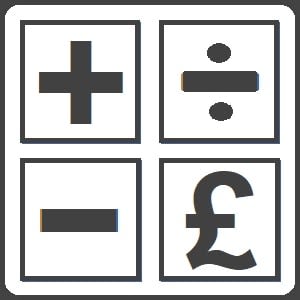SA100 Supplementary Forms Explained

GUIDE: Understanding the SA100 and Its Supplementary Pages
When it comes to filing your Self Assessment tax return, most individuals start with the SA100, the main return form. But for many taxpayers, that’s just the beginning. Depending on your income types or tax circumstances, you may also need to submit additional forms—called supplementary pages.
Below, we walk you through the common supplementary pages used in Self Assessment, so you understand what applies to you and why.
The SA100 – The Core Tax Return
The SA100 form includes:
- Your personal and contact details
- National Insurance and Unique Taxpayer Reference (UTR)
- General income such as savings interest and dividends
- Basic pension and benefit information
- Final tax calculation section
You’ll need to submit supplementary pages if you have more complex income types that the SA100 alone can’t cover.
Common Supplementary Pages You May Need
- SA101 – Additional Information
For items that don’t fit elsewhere, such as pension contributions, student loans, blind person’s allowance, or specific tax reliefs. - SA102 – Employment
If you’re employed or a company director, you’ll need to complete the SA102 supplementary page to report your income from employment. This form covers your salary, PAYE tax, and employment benefits, and it's where you enter details from your P60, P45, and P11D (if you received one for benefits like a company car, private medical insurance, etc). If you held multiple jobs in the same tax year, each one requires a separate SA102. There's also a specific version — SA102M — for ministers of religion, which is designed to report stipends, housing allowances, and other forms of religious income in a more appropriate format. - SA103 – Self-Employment Income
If you're a sole trader or earn income from self-employment, you’ll need to complete SA103 as a supplementary page to your SA100. There are different versions of this form depending on the nature and complexity of your business. Example, use SA103S, a short version for simpler, smaller businesses. Use SA103F, a full version for higher turnover or more complex self-employment. And there are other situation like for example, for Lloyd’s underwriters, use SA103L. Each has its own purpose and eligibility. We’ll publish a separate post soon explaining the differences in detail and how to know which one to use. - SA104 – Partnership
Required if you're a partner in a business. Choose short or full depending on the business structure and complexity. Also note it is related to SA800 Partnership Tax Return, which is for partnership itself. - SA105 – UK Property Income
For rental income or other income from UK-based properties. - SA106 – Foreign Income and Gains
Use this to report income from overseas sources, such as foreign interest, dividends, or employment. - SA107 – Trusts and Estates
For income received from a trust, settlement, or deceased person's estate. - SA108 – Capital Gains Summary
Required if you sold shares, property, cryptoassets, or other chargeable assets and need to declare capital gains or losses. - SA109 – Residence and Remittance
For non-UK residents, dual residents, or individuals using the remittance basis for overseas income.
These forms are meant to ensure that every relevant income source or tax position is correctly captured as part of your Self Assessment.
Other Related Forms Related to Individual Tax Payers
Although not always submitted by individual taxpayers, you may also come across these if relevant:
- SA800 – Partnership Tax Return (for the partnership itself)
- SA700 – Non-Resident Company Tax Return
- SA900 – Trust and Estate Tax Return
If you are personally responsible for an overseas company, you may still be required to file certain disclosures under your individual tax return.
As your accountants, we assist clients with all relevant SA100 and supplementary pages—ensuring every part is complete, accurate, and submitted on time.
If you're unsure which pages apply to your situation, feel free to get in touch for support.
Seek Professional Help
We’re Here to Help You Transition. Elaga Accountancy specialises in supporting taxpayer for optimising their tax position and compliance — from assessing your income, to year-end finalisation.
Whether you’re a UK tax payer or required to submit a non-resident tax return, we’ve got you covered.
Accountants at Elaga help you to simplify what feels complex. We’ll explain in plain language. We’ll tailor a solution that works for your situation — and you can focus on matters you care, not paperworks.
Talk to Elaga Accountancy Today
Not sure which supplementary forms applies to you?
Worried about deadlines? systems? or what to report?
Let’s talk it through — clearly, calmly, and practically.
We’ll help you plan ahead, avoid surprises, and make the transition stress-free.
Now is the time to get ready.
***Contact us to learn more.
#SelfAssessment #UKTaxReturn #SA100 #TaxTips #UKAccounting #PropertyTax #SelfEmployment #CapitalGains #ForeignIncome
Contact Us
Send a Message
Get in touch to discuss with us how we can best assist you.
